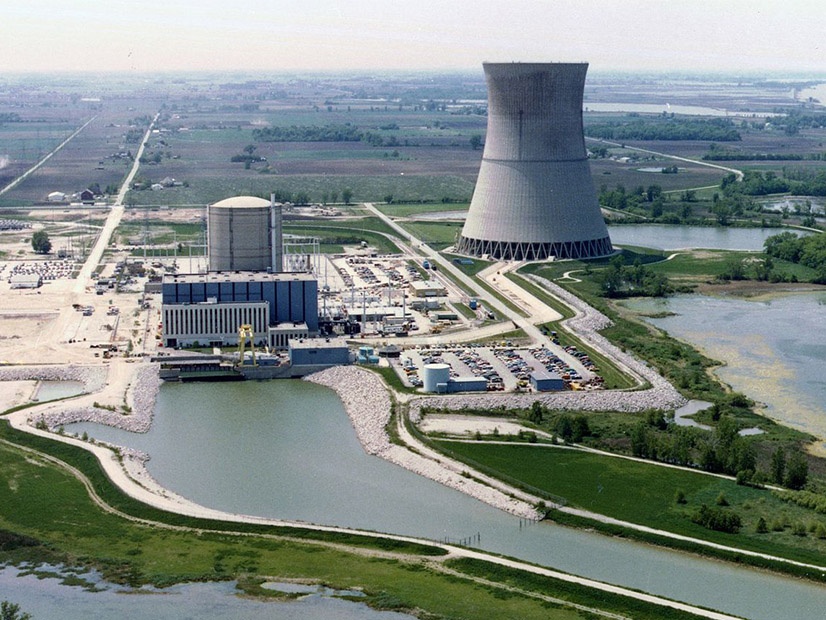The Nuclear Regulatory Commission this week ruled that the Davis-Besse nuclear plant in northwest Ohio violated cybersecurity rules and ordered it to develop new procedures.
The plant also now faces a series of stepped-up inspections to make sure its staff are following the new cybersecurity procedures.
NRC noted in a letter made public this week that Davis-Besse and its owner Energy Harbor, headquartered in Akron, agreed to a cybersecurity “performance deficiency” during a Dec. 6 closed-door meeting with the commission but disagreed about how significant the lapses were. The company has 30 days to appeal.
The commission uses a four-color code to signify the seriousness or significance of the citations it issues, which determines the subsequent level of future inspections the citations will bring.
A “green” citation indicates a minor infraction, without further significance, similar to a warning that law enforcement might issue to a speeding motorist. More serious citations are “white,” the next level, or “yellow,” leading to increasingly wider and more intrusive inspections. The fourth color is “red,” the most serious citation, typically leading to inspections of multiple systems, often plant-wide, all of it billed to the plant owner.
NRC stated the cybersecurity citation is “greater than green” but did not specify how much greater, meaning the citation is at least a “white” finding and could be “yellow” or even “red.” Cybersecurity violations are not publicly explained in detail, nor are appeals made public. Companies are by law not permitted to discuss publicly the details of cybersecurity violations. Energy Harbor did not return phone calls seeking comment.
The company is simultaneously opposing NRC findings on a maintenance issue at Davis-Besse that could affect the entire commercial nuclear industry.
Energy Harbor is fighting a preliminary citation that Davis-Besse’s failure over 15 years to inspect and clean electrical switches controlling the power output of the plant’s two emergency diesel generators (DGs) led to their failure to actually generate power when they were started during routine testing. In other words, the diesel engines fired up, but their generators did not produce power.
The preliminary finding was issued in December. (See NRC Preparing to Cite Davis-Besse Nuclear Plant on Safety Issue.)
Emergency DGs are crucial safety equipment capable of powering emergency cooling and other systems during a reactor shutdown and a simultaneous loss of power from the transmission grid. They are not often used, but when they are, they must work. That’s why nuclear plants have two, one of which is a backup.
An NRC “greater than green” citation that the electrical switches controlling the output of the generators require scheduled maintenance could have industry-wide significance because every nuclear plant is equipped with emergency DGs.
During a two-hour teleconference with NRC this week, the company’s engineers argued the that the failure of the electrical contacts in the switches was inherent in the materials used to make them and not because of lack of maintenance.
The commission is not expected to make a final ruling on the switches until March.



